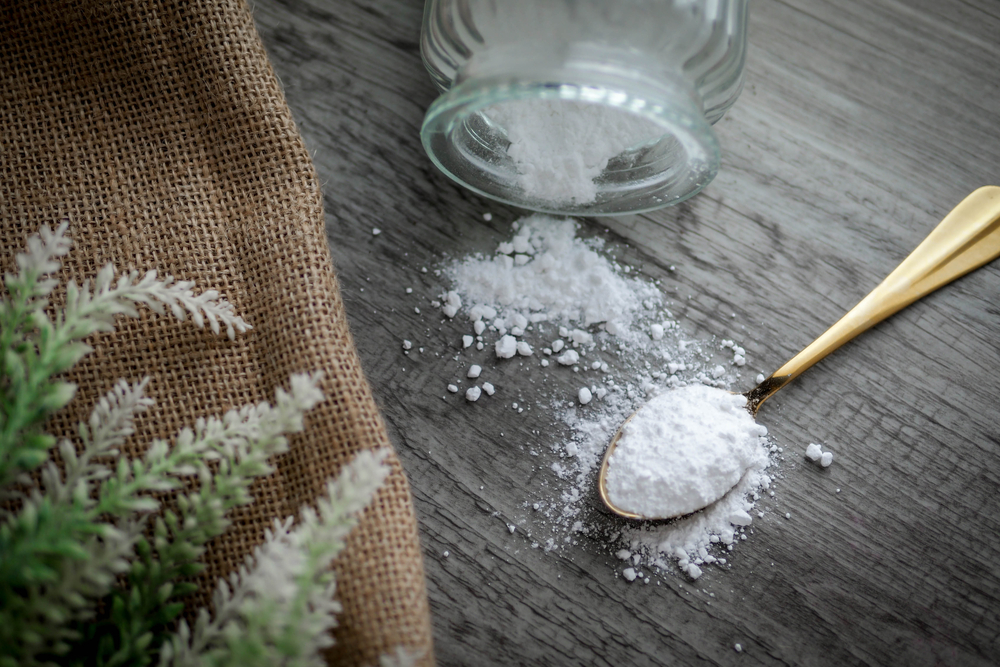Salt Substitutes: Making One Simple Salt Substitution Could Save Millions of Lives, Study Shows


What is salt? Also known as sodium chloride, salt is an ionic compound with the chemical formula NaCl, representing a 1:1 ratio of sodium and chloride ions. In its edible form, table salt, it is commonly used as a condiment and as a food preservative. (1)
Salt And Diet
Many of us use salt when cooking. We sprinkle it liberally over our meals, and we even enjoy it on the glass rims of our cocktails! (2)
Yet salt intake can negatively affect our hormones, and our hormones can affect salt retention within our bodies.
Elevated insulin levels can cause salt retention, inducing high blood pressure. Also, the cardiotonic steroid hormone, marinobufagenin (MBG), has been shown to play a physiological role in response to salt intake. High levels of this steroid hormone can affect heart structure, and increase the stiffness of our blood vessel walls. (6,7)
Excessive salt consumption can also incite kidney problems, fluid retention, strokes, and osteoporosis. (3)
Salt substitution involves swapping sodium chloride for potassium chloride, as a potential strategy to reduce sodium intake, while at the same time increasing our potassium levels. Optimal potassium levels are vital for the normal functioning of our hearts (including maintaining normal heart rhythm). (9)
Today’s issue isn’t a lack of sodium, but rather that we consume far too much of it. Humans cannot survive without sodium, true, but we only require small amounts. Every year, millions of people die as a result of conditions caused by excess sodium intake. (2,5)
A recent study has revealed that instead of ignoring advice to try salty alternatives, we should be listening up.
Spotlight On Sodium
The study, conducted in China, involved examining over 20,000 villagers from rural areas, recruiting participants with a history of stroke or poor blood pressure. The people came from 600 villages, with an average age of 65 at the outset of the trial.
Spanning longer than five years, during the experiment, half the participants were given a free supply of a salt substitution with less sodium and added potassium to use for the course of the trial.
They were encouraged to use it more sparingly than they normally would salt in order to maximize their overall sodium reduction.
The other half of the villagers served as a control group, continuing to use salt in their cooking and food preparation as before.
Over the course of five years, more than 4,000 of the participants died, with over 3,000 having a stroke and over 5,000 having some kind of major cardiovascular event.
However, when compared to regular salt consumers, the salt substitute group was significantly less likely to experience strokes (29.14 events vs. 33.65 events per 1,000 person-years), as well as lower chances of major cardiovascular events (49.09 events vs. 56.29 events), and death (39.28 events vs. 44.61 events). (4)
The findings suggest that salt substitutions on a national scale could save the lives of an estimated 460,000 people each year and that millions of lives all over the world could be saved if humans switched from regular salt to a modified alternative. (4,8)
Salt Substitute: Buy or Pass-By?
While salt substitutes are more expensive than regular salt, they are still inexpensive, and shelves are now stocking trendy salt substitution fare.
What are salt substitutes, and what aren’t they? What should you buy, and what should you pass by?
Most salt substitutes contain potassium chloride. Potassium chloride tastes somewhat like sodium chloride (salt) – though some people do not like the more metallic taste.
‘Lite’ salt replacements are often labeled “low sodium” and contain a blend of sodium chloride and potassium chloride. (9)
A Word On Blood Pressure
Potassium is an important mineral that helps lower blood pressure, so manufactured salt substitution products may be a healthy option for some people. However, they can be dangerous if you have conditions such as kidney disease, heart disease, high blood pressure, liver disease, or diabetes. (9)
These conditions may raise the risk of high levels of potassium in your blood — normally well-controlled by the body. The potassium in salt substitutes can tip that balance. Also, using salt substitutes while on certain medications can raise your blood potassium to unhealthy levels. (9)
Some healthier, real food substitutes include dill, dried seaweed, dried onion, celery seeds, nutritional yeast, smoked paprika, rosemary, coconut aminos, or truffle oil. They all give a burst of flavor with no side effects. (10)
Don’t just take your health with a pinch of salt. Do research on what next-level salt substitution products you should be choosing.
If you’re still not sure which trade-off to take, consider talking with an expert such as Dorian Marie about your cravings, your food choices, and your overall health.
Sources:
- https://en.m.wikipedia.org/wiki/Sodium_chloride
- https://www.nejm.org/doi/full/10.1056/NEJMsb1607161
- https://www.health.qld.gov.au/news-events/news/6-things-about-salt-that-arent-true#:~:text
- https://www.healthline.com/health-news/do-salt-substitutes-improve-your-heart-health-heres-what-experts-think?
- https://www.npr.org/sections/goatsandsoda/2014/08/13/340164014/death-by-salt-new-study-finds-too-much-sodium-is-a-global-killer
- https://www.ncbi.nlm.nih.gov/pmc/articles/PMC3533616/
- https://pubmed.ncbi.nlm.nih.gov/30382957/
- https://www.nejm.org/doi/10.1056/NEJMoa2105675
- https://health.clevelandclinic.org/are-salt-substitutes-a-healthy-way-to-lower-your-sodium-intake/
- https://www.healthline.com/nutrition/salt-alternatives









